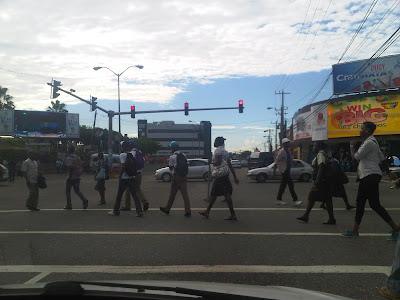MINUTES
PRSJ Special General Meeting
PRSJ Special General Meeting
Monday, March 25, 2013
Online - Skype - Facebook
Mr Christopher Benjamin - President
Mrs Gwyneth Davidson - General Secretary
Dr Dayner Azzellino - Trustee and Past President
Mrs Janneth Mornan Green - Past President
Ms Opal Davis
Mrs Donna Marie Rowe
Visitor
Dr Livingston White - Lecturer, CARIMAC - Internship Coordinator - IMC
Apologies
Mr Mark Thomas, Treasurer and Past President
Ms Akilah Maxwell, VP Special Events
Mrs Beverley Josephs, Past President
Mrs Alison Christie Binger, Past President
Ms Delmares White, Past President
Mr Gerrard McDaniel
Ms Diane Barrett-Hanson
Ms Pauline Stone Myrie
MS Gail Sommerville
Ms Audrey Williams
Ms Klao Bell
Ms Alleyne Graham
The meeting was called to order at 6:20p.m. by President Benjamin who gave a general welcome.
Persons who were waiting on the PRSJ Facebook homepage and fan page were ushered on to the Skype platform. Note was made that Dr Azzellino joined the meeting from Italy.
Motions Laid
AGM
The motion of having the AGM on April 9 was accepted.
Associate Membership
The motion of to move that the extension of Associate Membership to include graduates who had no work experience be laid at the AGM was accepted. This amendment to constitution will be an AGM agenda item.
Honorary Membership
The motion to move that special recognition be offered to all founding members by accepting them as honorary members of the society was discussed. It was expressed that some founding members had not made any further contribution to the society. This will not be an AGM agenda item.
Increase in Dues
The motion to move that dues for Membership be increased by 50% to $1,500 was discussed and will be an AGM as an agenda item.
Annual General Meeting
Notice of Annual General Meeting
April 9, 5:30p.m.
PCJ Auditorium
36 Trafalgar Road
Guest Speaker
The Contractor General
Mr Dirk Harrison LLB
AOB
Coordination of working groups of the society
Past President Azzellino noted that the work of the society can be improved if small working groups were identified who would carry out specific tasks related to overall goals. She said that she would be very happy to be the coordinator for this effort.
CARIMAC Internships
Dr White of CARIMAC expressed a strong interest for the PRSJ to assist the promotion of internships of undergraduate students in the BSc Integrated Marketing and Communications (which replaced the Public Relations degree). Dr White noted that CARIMAC has individual relationships with PRSJ members that it will continue to pursue with regards to internship placements.
Gen Sec Davidson replied that the PRSJ currently posts offers and news from CARIMAC to the general membership and will anticipate communication from CARIMAC on general terms and expectations of the organisation, and that this will be shared with members.
She also noted that she had a positive experience with summer workers from CARIMAC who were placed at Jamaica House in 2011.
IMC Scholarship
The meeting noted that there was currently no best IMC award of any kind offered at CARIMAC and that the society should consider offering an annual scholarship in this area.There was a general expression that online meetings can continue to be a feature of the society and that it was hoped that more persons would take up the opportunity.
The meeting was adjourned at 8:15p.m.
-30-
/gd




.jpg)




